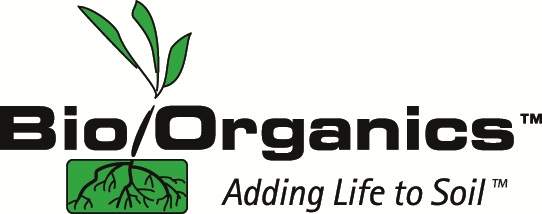There's almost always an easier way to do most anything. Paint an old chair with a brush or use a spray can? Look up words in a dictionary or just use spell check? Cook or have a pizza delivered? Really now, does a homemade pie taste that much different than a perfectly acceptable one from the grocery store? Does a fresh fish that you have caught yourself taste all that much better than a frozen one - and don't forget to factor in the price per pound for gear, bait, boat rental, travel, etc.?
There is always a trade-off between excellence and convenience, and that same general thought holds true for growing plants.
A grower can labor to create great plant-nourishing soil, rich with organic matter, minerals, natural nutrients and teeming with beneficial organisms such as earthworms, beneficial bacteria, and mycorrhizal fungi. Or, one can simply put plants in whatever soil and drench them regularly with liquid fertilizers. The former approach can take a lot of time, materials expense, effort, and patience. The latter is quick and easy. Do plants grow better in wonderful soil? Of course they do, but is the difference worth the trouble?
Why do some of us bother making such big investments in our soil if productive plants can be grown in sterile and lifeless dirt? For some folks, the answer is obvious. For others, it's most likely a waste of time trying to explain. There are a great many people who habitually and without question look for the easiest or "most logical" way to do things (and it seems there are more of them each year). Just try suggesting that these types spend more time and extra effort to get something done when there are far easier alternatives? You gotta be nuts!
In a way, the easiest-route folks have a point. If someone is completely satisfied with farming or gardening the way they are doing it, then why change? If there are already not enough hours to a day and money is tight, where does investing in soil improvement fit in - especially that "patience" part, where a payoff may not happen immediately? It can be hard to argue with them on the basis of pure time or money economics.
But for me, there's a lot of psychological satisfaction in turning a patch of ugly dirt that barely grows weeds into a garden with great soil. All the work involved in blending in compost, volcanic minerals, alfalfa & fish meal, slow-release organic fertilizer, and biological organisms eventually gives you truly healthy soil. A perma-mulch cover completes the program. It can make all the cost and effort seem worthwhile when you can easily scoop up rich dark loose soil that has a wonderful earthy aroma.
And the plants? There is really no comparison between good-soil and poor-soil plant performance, and I would include taste as well as yields. A tomato grown in mineral-rich, biologically-active soil has a complex depth of flavors that simply has to be tasted to understand. I recall once when a neighbor was astonished when he raved about the flavor of one of my tomatoes and found out that it was the same variety he had in his own chemically-fertilized garden.
What's it worth to get that additional level of flavor or disease-resistance or yield or whatever is important to a grower? How much convenience does one want to trade off for something that is much better in some way? I know there are many farmers, landscapers, nursery owners, and gardeners who share my willingness to put in extra work up-front to be rewarded later. I recently spoke to a grower who told me he had applied 150 tons of mulch (so far) to his small farm and now had incredible numbers of earthworms, plus super-healthy plants with yields that were far greater than before he committed to building up his soil.
I'm sure some would think he's gone overboard. Not me.
Good growing, my friends.
Don Chapman
President
BioOrganics
